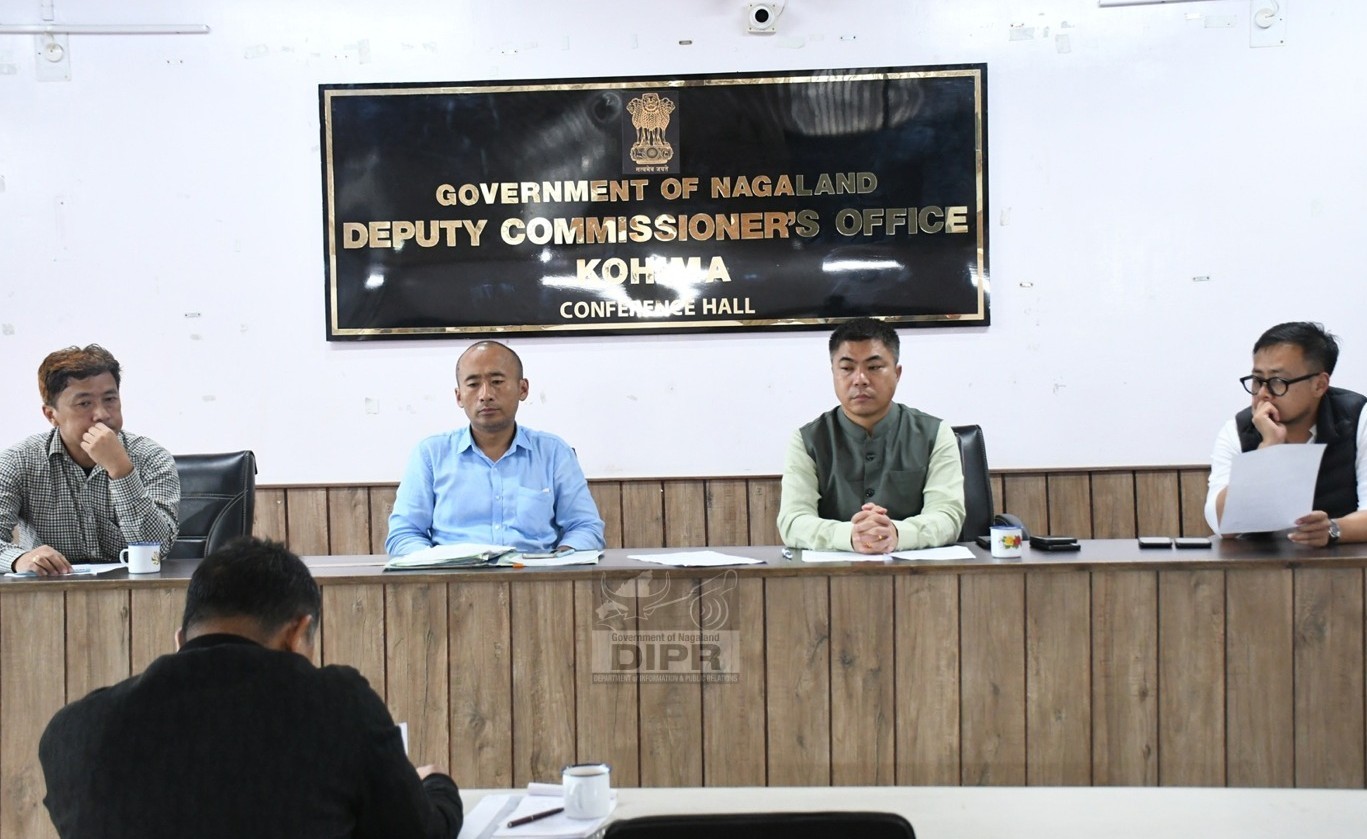Kohima DWSM reviews Jal Jeevan Mission implementation plan, focusing on sustainability, data accuracy, and grassroots engagement.
Published on Jun 18, 2025
By EMN
Share

DIMAPUR — The District Water and Sanitation Mission (DWSM), Kohima, held a meeting at the DC office, Kohima, on June 17 to review the action plan for implementing the Jal Jeevan Mission (JJM) under the guidelines issued by the Ministry of Jal Shakti.
The meeting was chaired by DC B Henok Buchem and attended by members of the mission, according to a DIPR report.
On the occasion Executive Engineer (Rural), Public Health Engineering Department (PHED), Kedo Punyü, explained the objectives and components of the mission, stating that the JJM focuses on a community-driven approach to water supply with active participation from gram panchayats and local communities.
He highlighted the mission’s emphasis on sustainability through groundwater recharge, rainwater harvesting, and protection of water sources.
Also read: Heavy rain triggers landslides, floods in Bhandari
Punyü also discussed the importance of water quality testing, capacity building, and awareness activities under the mission.
He noted that the mission has created employment opportunities at the grassroots level by engaging women’s self-help groups in the development and maintenance of water infrastructure.
He further elaborated on the role of the District Water and Sanitation Mission in coordinating various departments and ensuring the timely implementation of the mission at the district level. He also explained the tied grants provided under the 15th Finance Commission to support water and sanitation initiatives.
The DC and members of the DWSM held detailed deliberations on the ten key action points discussed during the meeting of deputy commissioners with the additional secretary and mission director of the National Jal Jeevan Mission (NJJM), Department of Drinking Water and Sanitation (DDWS).
Among the points discussed were the activation of the JJM dashboard to enhance monitoring, the establishment of a NABL-accredited water testing laboratory in Kohima, the strengthening of water sources, and the ensuring of accuracy in data uploaded on the Integrated Management Information System (IMIS) in the district, among others.
As part of the follow-up, the DC directed the concerned line departments to compile and submit data relating to water connectivity across their respective institutions to support effective planning and implementation.